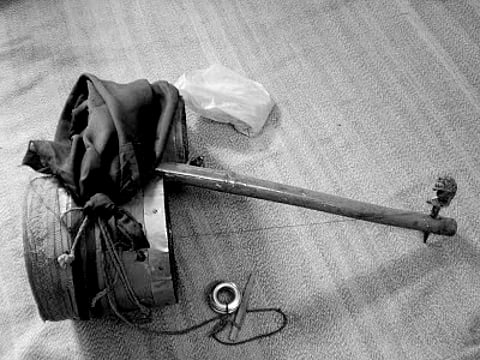Dedicated art: As the Devadasi system dies out, so too does a rich musical repertoire
´These instruments, they demand a lot. She demands a price every time she has to come out of the bag,' Imla Santappa Halsapor says, lovingly caressing the hollow drum she carries. Her lips are attempting a slow smile, but her eyes have a faraway look; perhaps she is thinking of earlier days, when the business of living first required reverence to the goddess Yellamma and only thereafter the act of pleasing a partner. Undoubtedly, times have changed. And so has the Devadasi system and all that the dedication of these girls entails – to themselves, to their customers and to the local community.
The women sitting together have little in common. The oldest at about 65, Yamunavva, utterly gorgeous and still shockingly bold in the things she says to men, is from the richer lot. Her gold chains, cotton sari with zari – a form of intricate embroidery using gold and silver threads – border and the heavy natt, the pearl-and-gold nose-pin, are proof of her high standing in the local community. They also indicate the wealth of her hiriyavaru, the permanent partner that the Devadasi can take on, apart from other customers.

